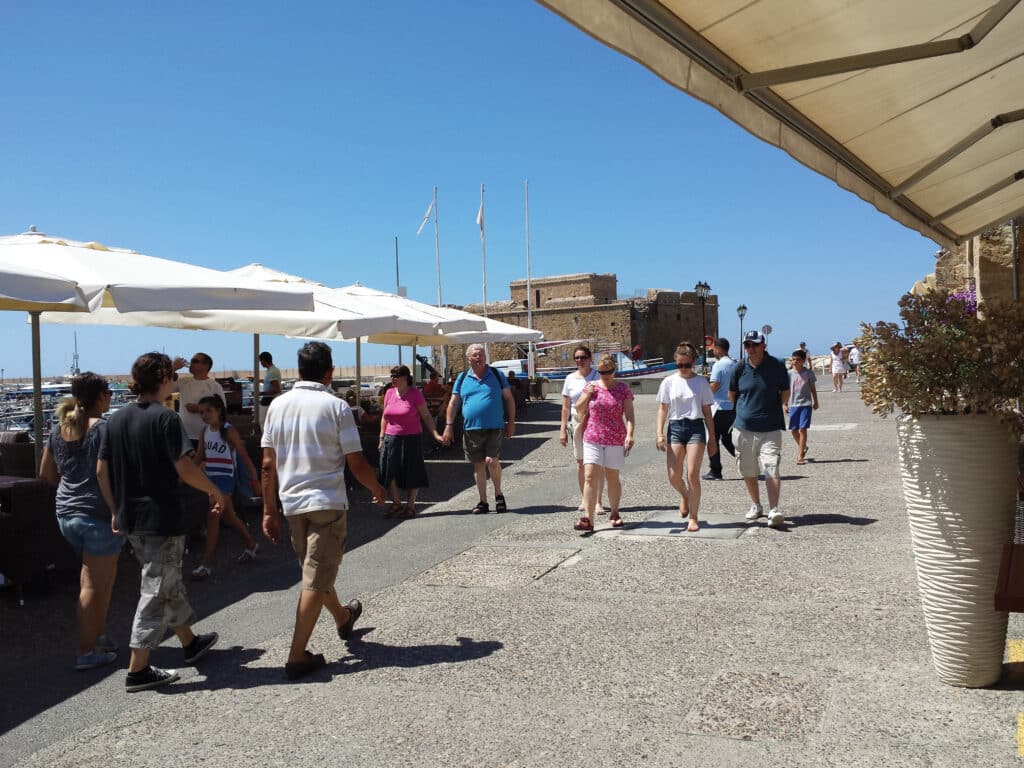Paphos hotels are reporting a drop in occupancy rates during the first quarter of 2024, when compared to the same period of the previous year, according to Evelyn Komodromou, deputy president of the Paphos Hoteliers Association (Pasyxe).
Komodromou explained that the evolving political landscape is contributing to a more cautious approach among tourists.
Speaking to the Cyprus News Agency (CNA), the Pasyxe deputy president highlighted the impact of the ongoing conflict in Israel, stating that the Israeli market in the Paphos region experienced significant growth until October 2023.
In addition, she pointed out that the earlier timing of the Catholic Easter this year has encouraged some to opt for alternative destinations like Turkey and Spain, inadvertently acting as a deterrent for Paphos.
Komodromou also noted that market stagnation is expected to persist until May 15, with a subsequent positive uptick in visitors from the United Kingdom.
However, she expressed concern that the first quarter of 2024 might not meet the desired levels due to this initial stagnation.
Responding to a question, she stated that approximately 60 per cent of hotels continue to be closed in the Paphos region during this period.
She added that those that are open record occupancy rates ranging between 50 per cent and 70 per cent, often with competitive pricing need to attract visitors.
Moreover, she noted that during this period, Paphos faces strong competition from rival destinations that benefit from lower costs, and are thus able to offer more competitive rates, such as Turkey and Egypt.
Komodromou also said that there is an expectation of a significant influx of visitors from the Cypriot market to hotels in the Paphos district during the celebration of Valentine’s Day.
Komodromou further highlighted changes in the profile of tourists, citing visitors from Croatia, Austria, Italy, Poland, and Germany choosing Paphos for their vacations.
She mentioned that the introduction of new flights to Paphos airport has brought a different demographic to the region.
What is more, Komodromou made note of certain pieces of legislation pertaining to short-term rental accommodation, which has encouraged the use of platforms like Airbnb, resulting in a shift in the profile of tourists choosing to stay in such accommodations.
Commenting on the larger problems faced by hoteliers, Komodromou emphasised that the labour force remains a persistent issue not only in Cyprus but throughout Europe.
While acknowledging government efforts to change tactics regarding employment from third countries, she again underlined the need to strengthen the workforce in the hotel industry.
Regarding ongoing coastal projects in Paphos, Komodromou expressed concern about the impact on tourism.
She said that tourists have faced significant inconveniences due to construction delays, leading to negative reviews on websites and forums.
She concluded by saying that while the centre of Paphos has undergone an aesthetic improvement, delayed projects in tourist areas continue to raise concerns for local hoteliers.
It should be noted that in January of this year, Evripides Loizides, president of the Paphos Hoteliers’ Association (Pasyxe), had warned that the local tourism industry had been bracing itself for a challenging January.
Loizides said at the time that the sector is trying to cope with lost arrivals due to the conflicts in Israel and Ukraine by targeting alternative markets in Europe.







Click here to change your cookie preferences